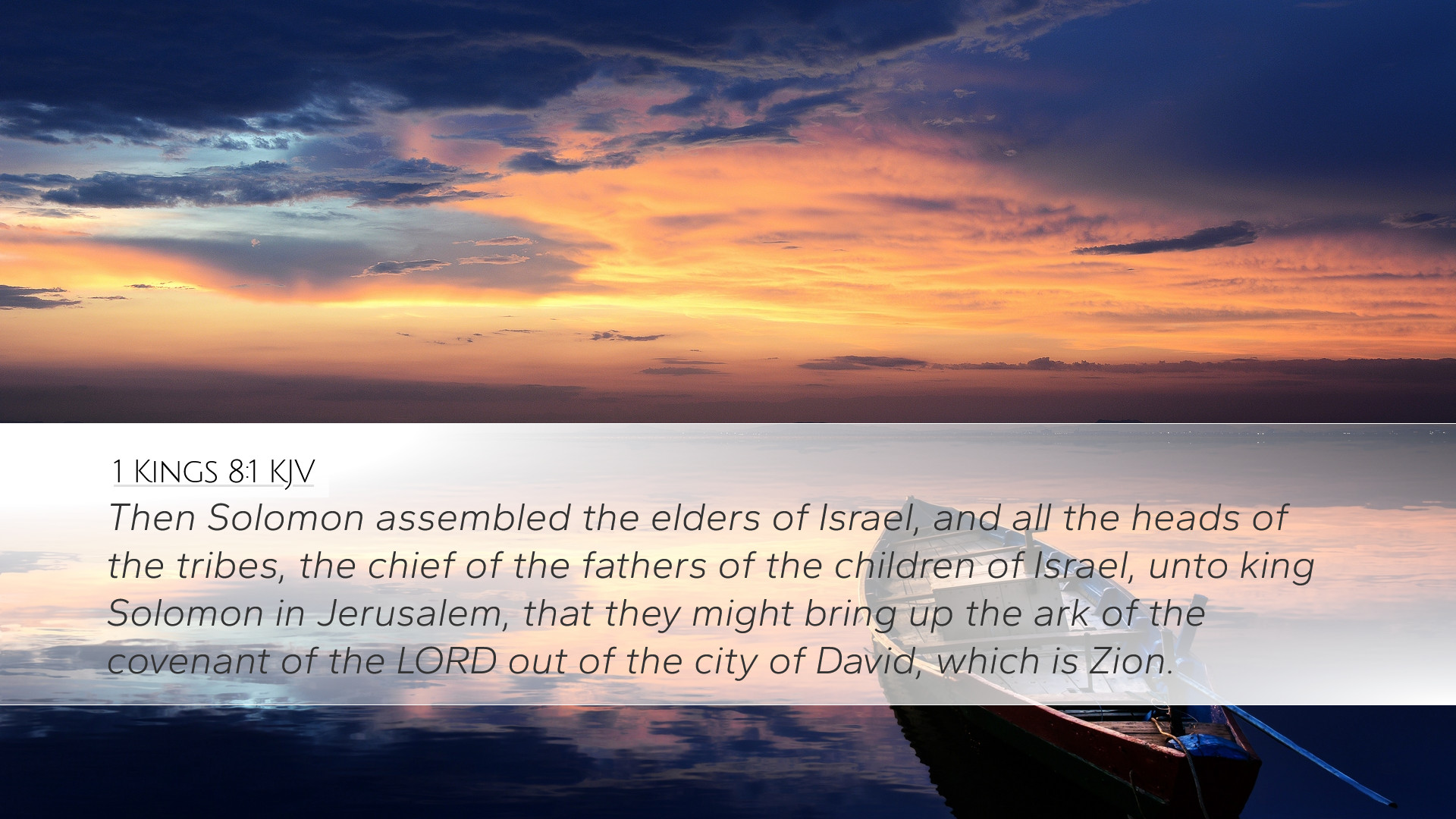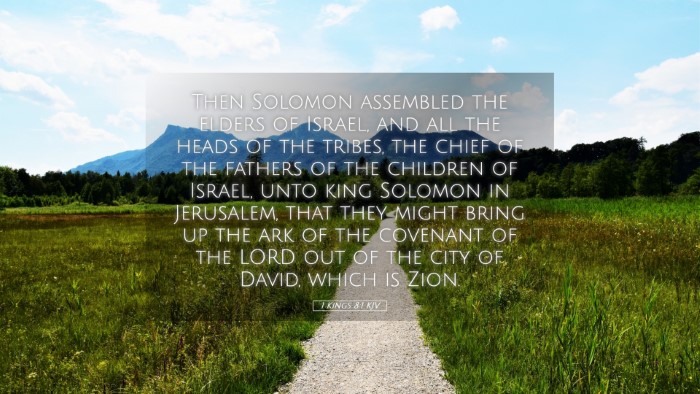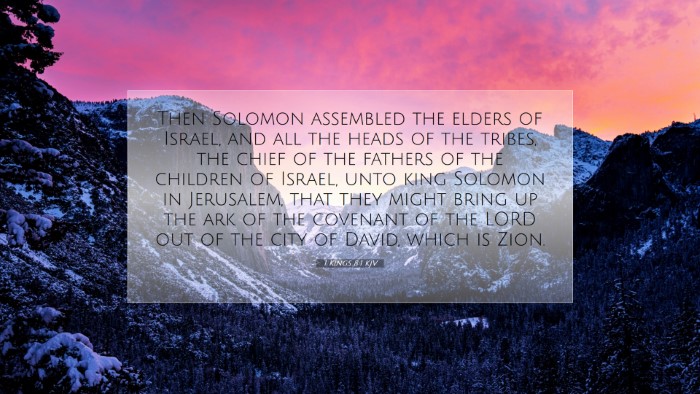Commentary on 1 Kings 8:1
Verse Text: "Then Solomon assembled the elders of Israel, and all the heads of the tribes, the chief of the fathers of the children of Israel, unto king Solomon in Jerusalem, that they might bring up the ark of the covenant of the LORD out of the city of David, which is Zion."
Introduction
This pivotal verse marks a significant moment in the history of Israel, specifically during the reign of King Solomon. It depicts the gathering of the leaders of Israel as they prepare for a momentous occasion: the transfer of the Ark of the Covenant to the newly constructed temple. This commentary synthesizes insights from various public domain sources to provide a comprehensive understanding of this verse, emphasizing its theological, historical, and practical implications.
Theological Significance
The assembling of the elders, tribes, and families signifies unity among God’s people. As noted by Matthew Henry, this unity is pivotal; it underscores that the Ark, representing God’s presence, is not merely for the royal family but for the entire nation of Israel. The Ark’s transfer from the city of David to the temple signifies the establishment of a centralized place for worship, highlighting the importance of divine and communal interaction.
Albert Barnes emphasizes that the Ark's transport is not just a logistical venture but a spiritual pilgrimage. It reflects Israel’s acknowledgment of God as their primary leader and provider, warranting reverence and formal recognition by representatives from every tribe and family. This act embodies Israel's collective identity as a nation under Yahweh’s covenant.
Historical Context
According to Adam Clarke, it is crucial to recognize that this event occurs after a long period of building and preparation under Solomon's reign. The temple's construction was not only a political achievement but a theological mandate, reflecting God’s promise to David regarding a temple for His name. The elders' assembly serves an important function in validating Solomon’s leadership and the cultural shift from temporary worship practices to a permanent temple.
Assembly of Leaders
- Inclusivity of Representatives: The gathering comprises elders, heads of tribes, and chief fathers, demonstrating a democratic and inclusive approach to worship. As Barnes points out, this indicates an understanding of leadership as something shared between the king and the peoples’ representatives.
- Symbol of National Identity: The Ark is central to Israel’s identity. It encapsulates their history, covenant, and worship. Solomon’s action implies a desire to reinforce national unity and identity, as highlighted by Henry.
- Public Display of Faith: This public forum showcases worship as a communal act. It allows the people of Israel to witness the momentous occasion, creating a shared experience of faith, which Clarke argues strengthens communal ties and enhances national pride in God’s presence among them.
Implications for Worship
The gathering to move the Ark illustrates the rightful disposition of worship in the community. Commentaries emphasize that worship cannot be isolated to the temple or the elite; it belongs to every Israelite. This public act serves as a model for modern worship practices where the congregation’s participation is crucial.
Sovereignty and Leadership
This event reveals Solomon as a ruler who understands the importance of God’s presence in leadership. As suggested by Clarke, Solomon does not assume authority without recognizing the divine endorsement necessary for his reign’s legitimacy.
Unity in Worship
The gathering to transport the Ark indicates a deeper theological truth about unity in worshiping God. The Ark symbolizes God’s promises, and as Henry notes, the movement of the Ark to the temple reflects a broader movement of God’s people toward acknowledging His lordship amid their community life.
Conclusion
1 Kings 8:1 presents a rich tapestry of meaning regarding the assembly of leaders, the importance of divine presence, and community identity bound by covenant. The text emphasizes that worship should be communal, representative, and centered on the understanding of God’s sovereignty. Through Solomon’s actions, the verse calls to contemporary believers to foster unity, give public acknowledgment to God, and actively participate in the communal life of faith. The insights from Matthew Henry, Albert Barnes, and Adam Clarke create a layered understanding, offering both theological depth and practical application for pastors, students, and theologians alike, encouraging them to reflect on the nature of worship in their ministries and communities.


